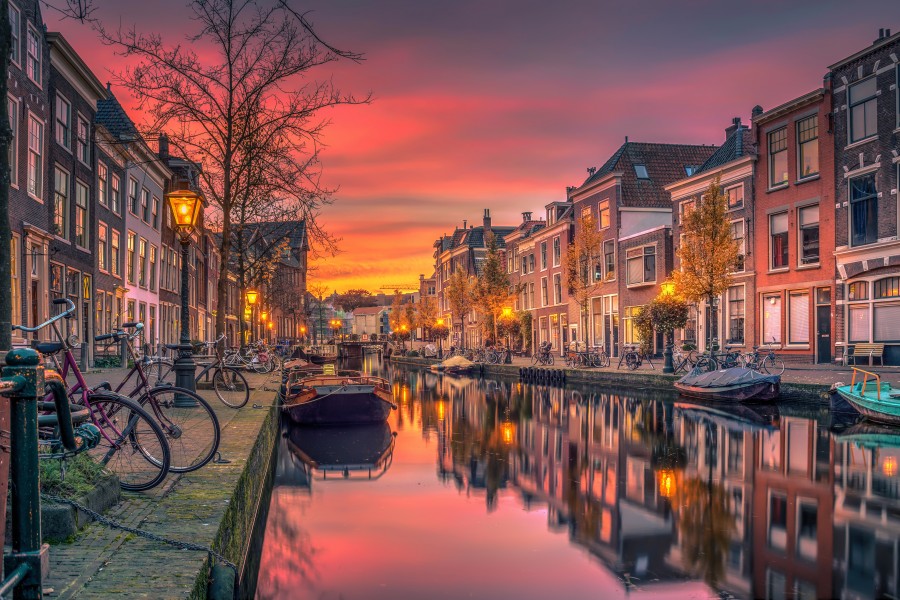SRON-Utrecht vestigt zich in 2021 in Zuid-Holland. Pieter Dieleman, groepsleider bij SRON, vertelt waarom de verhuizing zo’n goede zet is. ‘SRON is een verbindende factor tussen Delft en Leiden’.

Het onbestaanbare maken
Pieter Dieleman werkt sinds 2000 bij SRON. Hij leidt de Instrument Scientists groep, gesitueerd in Groningen en Utrecht. ‘We zijn technisch natuurkundigen,’ vertelt hij. ‘We ontwikkelen nieuwe technologieën en integreren die vervolgens zo in een instrument dat het als een robuust systeem de lancering en de barre omstandigheden in de ruimte zal overleven.’ Hiervoor werken de groepsleden samen met zowel universiteiten als ingenieurs. Ze vertalen datgene wat wetenschappers willen naar concrete instrumenteisen. ‘Op die manier kom je automatisch dingen tegen die nog niet bestaan. We maken dan dus het onbestaanbare,’ voegt hij toe.
Verbindende factor
SRON doet ruimte- en klimaatonderzoek, maar houdt zich dus ook bezig met de natuurkundige wetenschap die nodig is om nieuwe instrumenten te ontwikkelen. ‘Je kunt namelijk pas iets nieuws ontwikkelen als je precies begrijp hoe het werkt,’ legt Dieleman uit. Hij ziet SRON daarom als de linking pin tussen Delft en Leiden: ‘Door met de Delftse meer toegepaste wetenschappers samen te werken, kunnen we vernieuwende instrumenten bouwen waarmee de wetenschappers in Leiden en bij SRON weer aan de slag kunnen.’ Hij gelooft dan ook dat SRON en Zuid-Holland elkaar goed kunnen versterken.
Door de verhuizing hoopt hij bovendien op nieuwe impulsen. ‘Als je ver van elkaar zit, kun je natuurlijk bellen of mailen. Maar dat doe je enkel als je al samenwerkt en elkaar ergens voor nodig hebt. Maar als je dichterbij bent, en samen promovendi begeleidt, word je vanzelf gefaciliteerd om te overleggen. Zo ontstaan spontaan allerlei nieuwe ideeën en samenwerkingen.’
Kennis in overvloed
‘Kijk bijvoorbeeld naar Delft. Daar is zoveel kennis. Nu we ons in de buurt vestigen, kunnen we veel serieuzer en breder kijken naar alle technische mogelijkheden. Ik denk aan de fundamentele kennis van hun natuurkunde groep, bijvoorbeeld over detectoren voor zwaartekrachtgolven, maar ook aan de optische kennis. En uiteraard de opleiding lucht- en ruimtevaarttechniek, waar de systeemkennis aanwezig is om de ontwikkelingen gestructureerd uit de voeren.’ In Leiden denkt Dieleman aan de Sterrewacht, maar ook het LiS (Leidse Instrumentenmakersschool) en het LION (Leids Instituut voor Onderzoek in de Natuurkunde) waarmee SRON gaat samenwerken op het gebied van supergeleiding.
Inloop van studenten
In Groningen is SRON gevestigd in een gebouw van de Rijksuniversiteit Groningen, waar veel contact met studenten is. Dieleman hoopt dat dit in Zuid-Holland ook het geval zal zijn, maar dan in nog grotere mate: dat studenten bij SRON langskomen en kunnen stagelopen, afstuderen en promoveren. Vice versa kan SRON de studenten interessante colleges, kennis en expertise bieden. ‘Op die manier kunnen we abstracte vakken een stuk concreter maken. Bij ons kun je zien hoe de kennis wordt toegepast. We zitten tussen de universiteit en de industrie in, want we doen onderzoek én we maken dingen. Als studenten een rondleiding krijgen, kunnen we laten zien wat wij doen met de stof die zij net theoretisch behandeld hebben. Zo maken we de kennis tastbaar en hopen we studenten enthousiast te maken.’
Outreach
Dieleman is blij dat de verhuizing een kans biedt meer aan outreach te doen en kennis met het brede publiek te delen. ‘SRON, Delft en Leiden zijn trots op wat ze doen. Samen kunnen we een fantastisch pakket opzetten om mensen die meer willen weten te stimuleren. Denk aan open dagen, special events of scholieren die een studiekeuze moeten maken. Door bij SRON rond te kijken zien scholieren hoe natuurkundige principes in instrumenten worden toegepast om vragen uit de sterrenkunde of aardwetenschappen te beantwoorden.’
Dankbaar
Dieleman is blij met de toekomstige centrale locatie van SRON in Nederland. Daarom vindt hij het heel prettig zo warm onthaald te worden door Zuid-Holland. ‘Ik ben erg dankbaar dat we deze gelegenheid krijgen en op deze manier gefaciliteerd worden, in een mooi gebouw. En dat de universiteiten moeite doen om richtingen te ontwikkelen die nog beter passen bij onze ambities. ‘We willen reuze-graag de industrie van Zuid-Holland betrekken bij onze projecten. Ook willen we onze kennis delen om het onderwijs en onderzoek aan de universiteiten nog completer te maken.’
Bron: Universiteit Leiden
———————————————————————————————————————————–
———————————————————————————————————————————–
‘SRON is a connecting factor between Delft and Leiden’
In 2021, SRON Utrecht will settle in South-Holland. Pieter Dieleman is group leader at SRON. He tells why the upcoming relocation is such a good idea: ‘SRON is a connecting factor between Delft and Leiden.’

Creating the non-existent
Pieter Dieleman has been working at SRON since 2000. He leads the Instrument Scientists group, situated in Groningen and Utrecht. ‘We are technical physicists,’ he says. ‘We develop new technologies and then integrate them into an instrument in such a way that it will survive the launch and the harsh condition in space as a robust system.’ The group members work together with both universities and engineers to achieve this. They translate what scientists want into concrete instrument requirements. ‘In that way, you automatically encounter things that do not exist yet. We then make the non-existent,’ he adds.
Binding factor
SRON conducts space and climate research, but is therefore also involved in the physical science that is needed to develop new instruments. ‘You can only develop something new if you understand exactly how it works,’ explains Dieleman. He therefore sees SRON as the linking pin between Delft and Leiden: ‘By working together with the more applied scientists from Delft, we can build innovative instruments that the scientist from Leiden and SRON can use.’ He believes SRON and South-Holland will reinforce each other.
He hopes the relocation will also induce new impulses. ‘When you located far away from each other, you can of course call or email. But you only do that if you already work together and need each other for something. But, if you are closer physically, and you supervise PhD students together, you will automatically be facilitated to meet and talk. This way, all kinds of new ideas and collaborations emerge spontaneously.’
Knowledge in abundance
‘Look at Delft for example. They have so much knowledge there. When we have established ourselves in the neighborhood, we can look much more seriously and broader to all technical possibilities. Look at the fundamental knowledge of their physics group, on topics like detectors for gravitational waves and optics. And of course the aerospace engineering education, where the system knowledge is present to carry out the developments in a structured way.’ In Leiden, Dieleman looks forward to collaborate with the Leiden Observatory, the LiS (Leiden Instrument makers’ school) and LION (Leiden Institute of Physics), with which SRON will cooperate in the field of superconductivity.
Students
In Groningen, SRON is located in a building of the University of Groningen, where there is a lot of contact with students. Dieleman hopes that this will also be the case in South-Holland, but then at an even greater extent: that students will come to SRON and can do an internship, graduation or promotion. Vice versa, SRON can offer students interesting lectures, knowledge and expertise. ‘That way, we can make abstract subjects much more concrete. With us you can see how the knowledge is applied. We are actually in between the university and the industry, because we conduct research and we make things. When students get a tour, we can show what we do with the subject matter they just have treated theoretically. That way we make the knowledge tangible and hope to make the students enthusiastic.’
Outreach
Dieleman is glad that the relocation offers an opportunity to do more outreach and to share knowledge with the general public. ‘SRON, Delft and Leiden are proud of what they do. Together, we can set up a fantastic package to encourage people who want to know more. Think of open days, specials events or students who have to make a study choice. By looking around at SRON, students see how physical principles are used in instruments to answer questions from astronomy or earth sciences.’
Grateful
Dieleman is pleased with the future central location of SRON in The Netherlands. Therefore, he thinks it is very nice to be so warmly welcomed by their new home base. ‘I am very grateful that we get this opportunity and are facilitated in this way, in a beautiful building. And that the universities take the effort to develop study directions that fit even better with our ambitions. We really want to involve the industry of South-Holland in our projects. We also want to share our knowledge to make education and research at universities even more complete.’
Source: Leiden University


